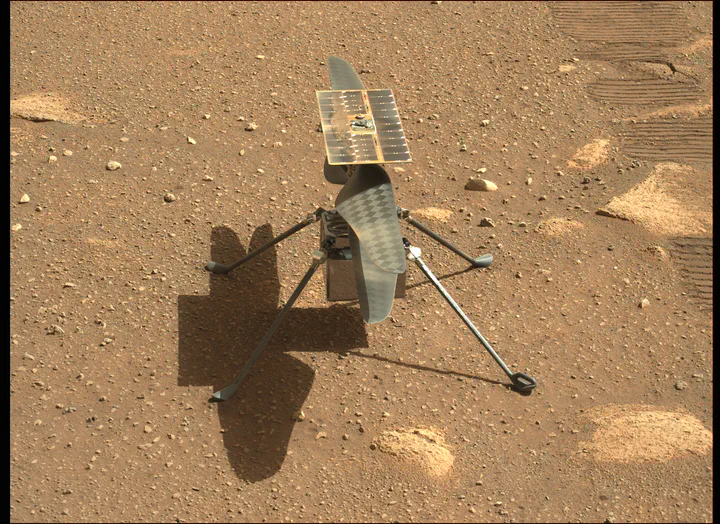Onboard Autonomous Health Assessment and Global Localization for the Mars Helicopter: Towards Multi-Flight Operations
Jan 1, 2025·,,,,,,,·
0 min read
Connor Basich
Cecilia Mauceri
Gerik Kubiak
Juan Delfa
Alberto Candela
Pedro Proença
Barry Ridge
Steve Chien

Abstract
NASA’S Mars Helicopter, Ingenuity, marked a historic moment in the field of space robotics when it performed the first successful, powered flight on another planet on April 19, 2021. Moreover, despite being launched as a technology demonstration with only five planned flights, Ingenuity went on to complete 72 flights, almost 15 times what was planned, until it flew for the final time on January 18, 2024. Integral to the system’s long lifespan was a rigorous ground-in-the-loop cycle during which human engineers would both localize the helicopter and assess the system’s health and flight readiness. Though successful, the requirement of this ground cycle prohibited Ingenuity in engaging in multi-flight operation. While sufficient for a technology demonstration, we argue that this would severely limit the science potential of future missions such as the Mars Science Helicopter and Dragonfly rotorcraft. Consequently, we propose an autonomy framework that aims to replicate the ground cycle onboard by autonomously performing both system health assessment and global localization onboard, with the goal of enabling multi-flight operation in future systems. We discuss the challenges presented by the problem setting itself, the mission parameters that influenced our approach and evaluations, as well as the lessons we learned along the way and how those lessons can be applied to similar future missions, such as the Mars Science Helicopter and Dragonfly.
Type
Publication
IEEE Transactions on Field Robotics (Under Review)